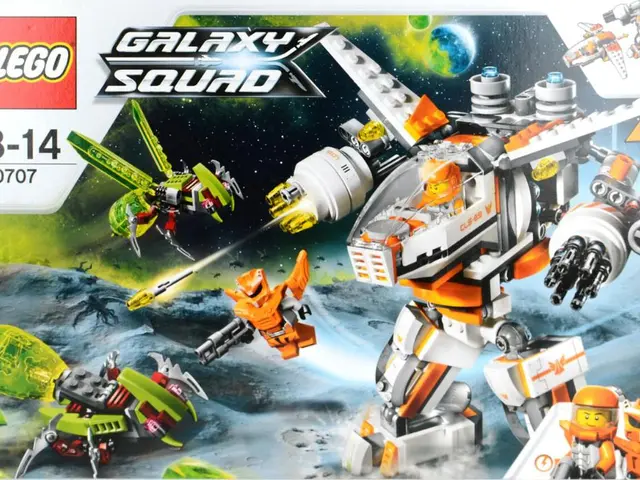Enhanced Grasping Capabilities in Advanced Robotic Picking Systems
The Karlsruhe Institute of Technology (KIT), one of the German universities of excellence, is spearheading a groundbreaking project aimed at developing more robust and efficient solutions using AI algorithms. KIT, being "The Research University in the Helmholtz Association", creates and imparts knowledge for society and the environment, with about 9,600 employees in various disciplines.
KIT's innovation efforts are geared towards bridging important scientific findings with their application for societal benefit, economic prosperity, and preservation of our natural basis of life. In line with this mission, researchers at KIT are investigating the use of distributed AI methods to make picking robots smarter.
The project, known as FLAIROP, is a partnership between Canadian and German organizations. The University of Waterloo (Canada) is responsible for development of object recognition, while KIT-AIFB is developing a Federated Learning Framework. DarwinAI, a Canadian company, is contributing their Explainable (XAI) platform and local and global network optimization, as well as automated generation of network structures.
The approach being used is federated learning, which balances data diversity and data security in an industrial environment. This method allows robots to learn from each other without sharing sensitive company data or secrets. In the FLAIROP project, four autonomous picking stations will be set up for training the robots, two at the KIT Institute for Material Handling and Logistics (IFL) and two at the Festo SE company.
Similarly, four autonomous packing stations are being set up at Bosch, Brose, Fraunhofer IPA, and Siemens to allow robots to learn from each other. This collaboration aims to develop new ways for robots to learn from each other without sharing sensitive data and company secrets.
KIT-IFL is leading the consortium, responsible for development of grasp determination and automatic learning data generation. Festo S.E. is developing picking stations for the project, and will pilot in real warehouse logistics. The German partners contribute their expertise in robotics, autonomous grasping through Deep Learning, and data security.
The University of Waterloo is working with KIT and Festo to bring the next generation of trustworthy artificial intelligence to manufacturing. The goal is to use the most versatile training data possible from multiple locations to develop more robust and efficient solutions using AI algorithms. This project aims to bring the next generation of trustworthy artificial intelligence to manufacturing, fostering a more efficient and secure industrial environment.
For more information about this press release, please contact Dr. Felix Mescoli, Press Officer, at +49 721 608 41171 or [email protected]. The FLAIROP project is a significant step towards a more autonomous and secure industrial future, and we look forward to its progress.
Read also:
- Automotive Updates: Wolfspeed, NVIDIA, ABB, and Veritone in Spotlight
- Demonstrating Carbon Storage in Agricultural Forestry through Digital Monitoring and Verification
- Interview Questions for Erica Tandori, an Artist, Intellectual, and Educator at Monash University
- European Investment Bank Allocates €20 Million to Greek Food Technology Firm STIQ








